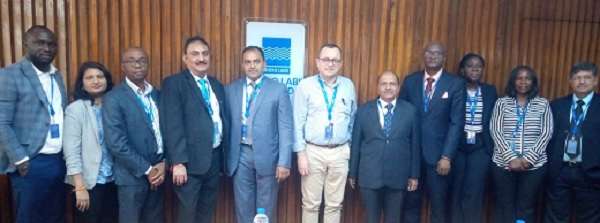Place your adverts here on InfoDig @ low rates; banner ads, sponsored links and guest articles etc. Contact us
Nigeria’s worsening inflation figures have forced experts to argue that World Bank and International Monetary Fund-backed economic reform is not suitable for the country’s economy.
The comments come in the wake of rising inflation which the National Bureau of Statistics measured at 32.17 per cent in September 2024 despite the Central Bank of Nigeria’s Monetary Policy hikes by around 800 basis points in the last year.
Nigeria’s benchmark lending rate was hiked to 27.25 per cent in September to control rising prices.
But figures of NBS showed that inflation flawed the policy decision to rise by 0.55 per cent in September to 32.70 per cent from 32.15 per cent in August, 2024.
Before the NBS published the figures, the World Bank had said Nigeria’s path to economic transformation depends on its ability to sustain critical reforms for at least 15 years,
The Senior Vice-President of the World Bank Group, Indermit Gill, hailed the CBN Governor, Olayemi Cardoso for his reforms.
But experts have argued that the reforms have not moderated the country’s worsening inflation despite MPR hikes.
The Senior Economist and Partner at SPM Professional, Paul Alaje, argued that the policy direction of the government as recommended by the IMF and World Bank may worsen economic conditions.
Alaje said, “The obvious truth is that the policy direction is not right for the type of economy our country has. I believe that we need to review some of our economic policies urgently.”
He argued that in 2016, the World Bank projected Nigeria’s economy was strong until it fell into recession. He noted that Nigeria’s economic fortune can only change if the government makes policies that targets production.
The economist said, “International organizations were saying as of yesterday that these painful policies may not yield tangible results for the next 10 to 15 years, even though they supported the policy. How amusing. I remember an IMF chief once said in 2016 that our economy was strong and would not enter a recession, but of course, we opposed this assertion and maintained that the economic outlook was weak and would certainly enter a recession on WE FM 106.5 in 2016. The rest is history; Nigeria’s economy did not only contract but also entered a recession in the year 2016 as we projected.
“Regarding the current economic situation, we may not come out of this quagmire anytime soon if the floatation policy is still in place, and if we don’t change the economic direction to be manufacturing-oriented.”
Alaje recommended that the government should block leakages, encourage investment in oil and gas, recover revenues from mineral resources and boost power.
“Without an end to the floatation policy, poverty, hunger, and deprivation may not end soon,” he added.
















 English (US) ·
English (US) ·